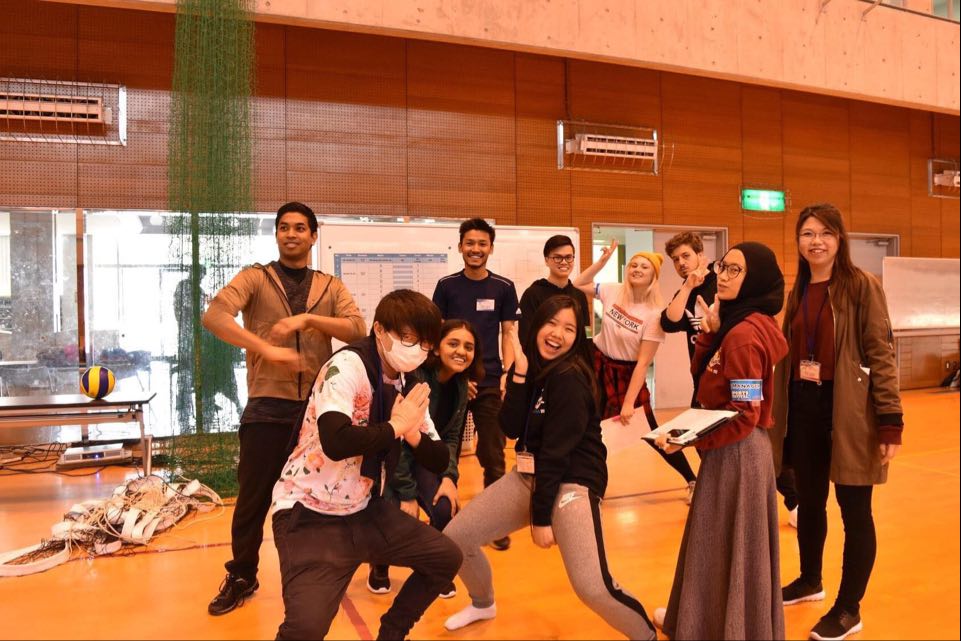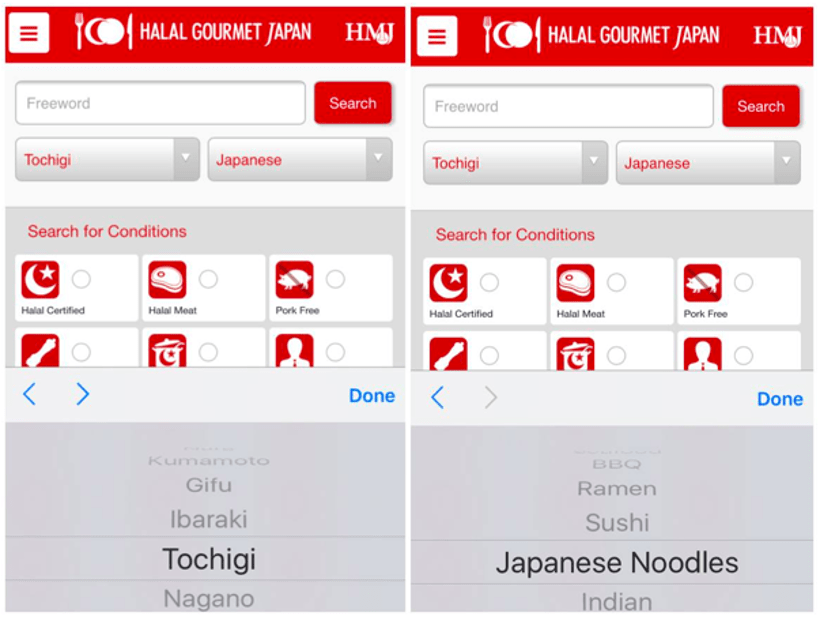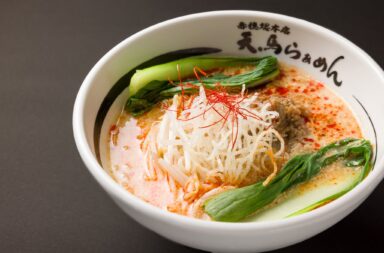Being an International Student in Japan
Written by: Zhafira Aqyla
Japan has always been a popular hub for international students around the world. In addition to its cool and one of a kind culture that never fails to captivate the global market, Japan is known to be especially attractive for those who wish to continue their education abroad. However, we acknowledge that as appealing as it may sound, many of our audience have their own concerns about living in Japan throughout their studies. In this article, we would like to answer some of your most asked questions and ease your worry.

How do I pursue a higher degree in Japan?
When we are excited about something, we tend to get overwhelmed with the bigger picture and forget that we can plan our future accordingly once we break it into smaller, achievable plans. So you have decided you want to go to Japan, let’s check that box. Next, have you chosen what you wish to study or how you will be supporting yourself financially over the course of your studies?
Finding the right program and university
There is an abundance of programs from top-class universities that you can select in Japan. But first, let’s take a paper our and brainstorm. What are your interests? What would you like to focus on? Are you thinking of studying abroad for undergraduate, or do you wish to continue to masters and even doctoral course? Are you thinking of top global national universities, or private? Once you have found your answers, it will help you type in your keywords on the search engine much easier.
One website that you can refer to for English programs in Japanese universities is UNIV. IN JAPAN: English-taught University Degree Programs in Japan. You can select your field of interest and level of study through this website. Once you’ve done that, you can search for the application procedures on each university’s’ website and start preparing your documents.
Finding scholarship
While you’re searching for the right program, it is always best to search for scholarships to fund your studies. Let’s face it, living cost in Japan is considered one of the highest in the world. However, you’re in luck. Despite its high living cost, Japan is very generous in awarding scholarships for its promising candidates. To give you a headstart on your search, you can look up MEXT Scholarship and JASSO Scholarship. If they don’t seem to be what you are looking for, you can consider some scholarships offered by your home country.
Preparing for the application
University, check. Scholarships, check. Once you know what you’re looking for, we recommend you go ahead and prepare the documents necessary for your application. Each university may differ slightly in what they require, but they should be more or less similar. Study for your SAT/GRE, prepare your research proposal, take an English proficiency test, and collect recommendation letters from your teachers or professors. Since these preparations take some time, make sure to plan accordingly.
Am I required to know Japanese when I apply for a program?
Not necessarily, especially if you are applying for an international program. The most common case is for you to study Japanese after you receive an offer and have left for Japan. The university where you are studying will likely require you to study Japanese for the first few semesters to ensure you are able to communicate in a foreign country at the most basic level. However, if you have previous knowledge in Japanese, that may be counted as a plus point for your application, so you can always go ahead and learn the basics now!
I’m a Muslim, will I be____________________in university?
Allowed to pray in campus

Although East Asian countries may seem a bit out of touch with the Muslim world, you would be surprised to find out how much Japan has been making an effort to accommodate its foreigners’ religious necessities. Top universities in Japan are especially generous in catering to their Muslim students, even to a point of providing prayer rooms specifically for this purpose.
Additionally, Japan has been home to international Muslim students for decades now, which means their professors are very much aware of students’ needs. Students are free to pray when it is time, and the professors will be happy to let you excuse yourself for a few minutes while you pray in the designated rooms. When your chosen university does not have a prayer room, you may always ask for an empty room to pray at, and they will kindly provide you with one. A little trick we can offer you is to always bring your prayer kit with you and take ablution from home.
For all the gentlemen who are worried about Friday prayer, it is true that there are very few mosques in Japan. However, you can still pray in the prayer room with the other gentlemen, and you won’t even have to excuse yourself from class, as it is usually conducted during lunch break.
Able to find Halal food


Similar to prayer rooms, top universities in Japan have been paying attention to students’ dietary needs, whether it is religious or for health purposes. In the name of serving students from all over the globe, many universities have taken to providing Halal menus on campus’ cafeteria for affordable prices. They range from Japanese food to ethnic food that is popular amongst both Japanese and international students.
If they do not provide the Halal menu, they are usually transparent with the ingredients served on each dish, so you can ask for details and they will be happy to clarify with you.
If you prefer cooking for yourself, you can get Halal ingredients at Gyomu supermarket, available almost everywhere. If you look hard enough, you might even find ingredients from your home country. Another way you can purchase Halal ingredients is through the mosque. As long as you know where your local mosque is located, you can take a quick trip on an off day and get your preferred meat, spices, and many more.
Wear Hijab or Niqab
Many ladies have been asking us this question, and the simple answer is, yes. You have the freedom to wear your hijab and it should not give you any problem. Since there are many international students in Japan, you and your hijab will not be the only ones to stand out, and that is the best party of diversity. Everyone is special in their own way.

It is true that you may get asked about Hijab every once in a while, but let me reassure you that these questions are usually well-intended and come from a place of curiosity. What you can do when they start asking questions is try not to be defensive and simply explain why you’re wearing it and what it means to you. If they ask whether it’s hot down there, always laugh it off and let them know how it really feels. Explain to them in the easiest way possible when they ask, but if they don’t, then that should be a sign that they are not bothered at the slighters.
Able to find a Muslim community
If you apply to university in big cities, yes. You’d be surprised to see how many Muslim communities there are. Since Japan is very attractive in the Asia Pacific region, and the region itself is home for more than 50% of Muslims in the world, chances are, you will not be the only Muslim in the university or the city. Go to your local mosque and get to know your brothers and sisters. Ask for mosque’s weekend programs or Ramadan events. They will make you feel at home. If you can’t find a mosque, check if your university has a prayer room or Muslim organization. If not, check with your friends of the same nationality who are of the same faith. If you really can’t find one, perhaps it is your calling to start one!
Do Japanese university students hold certain prejudice towards Muslims? Will I be able to make friends with Japanese students?
Japanese young people are generally more aware of diversity than the elderly, so your classmate or club-mates will likely be very accepting of you at best and indifferent at worst. We advise you to not take immediate offense when it takes time for your Japanese friends to approach you. Many of them are shy by nature, but they will be very kind and polite if you strike up a conversation with them.
From our experience, the number one reason for an awkward relationship with your Japanese peers will not be your faith. In fact, they are usually more concerned about their inability to communicate with you due to language barriers. So if you can learn a little bit of Japanese, it has a high chance of smoothening your process of making friends with them. Good luck!
What are your recommended smartphone applications for Muslim students in Japan?
Our number one recommendation is the “Muslim Pro” app. If you come from a Muslim-majority country, you probably have no need for this app since you can hear the adhan left and right, and the qibla is provided in every prayer room. Since these are not common in Japan, the Muslim Pro app has helped a lot of us tell the time for prayer and show the qibla wherever we go.

Another app is our very own Halal Media Japan app. This app is different from Muslim Pro and it focuses more on the existence of Halal food in your area. As international students, we recognize your passion for traveling as much you can in between your semesters. Our app is helpful for you to; 1) find nearby Halal restaurants and 2) check the food ingredients at the convenience store and tell you whether they are Muslim-friendly or not. Once you come to Japan, we recommend you download it straight away and get your adventure started.
We hope this FAQ was able to answer some of your questions. If you need further reassurance on life as a Muslim in Japan, you can always browse through our website for more information. You are also free to inquire Halal Media Japan on Facebook and Instagram or email to [info@food-diversity.co.jp].


